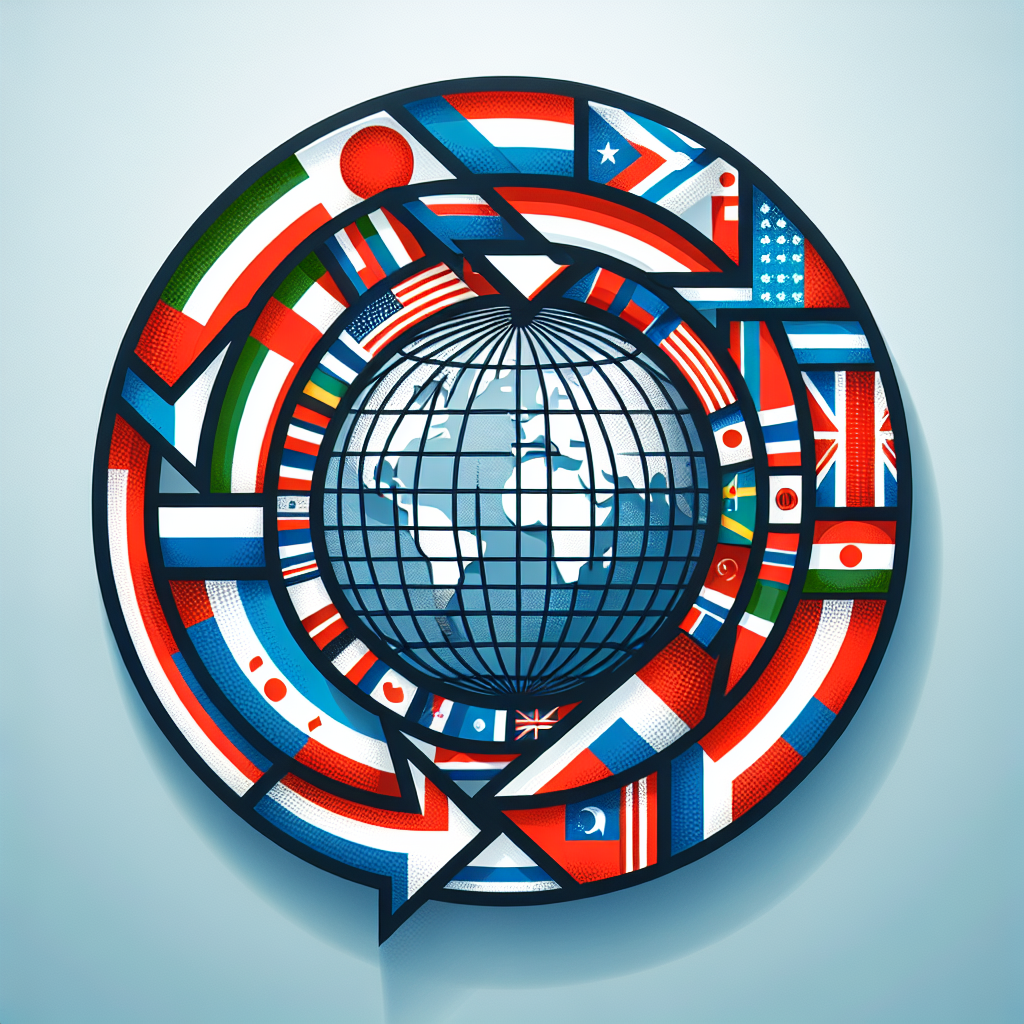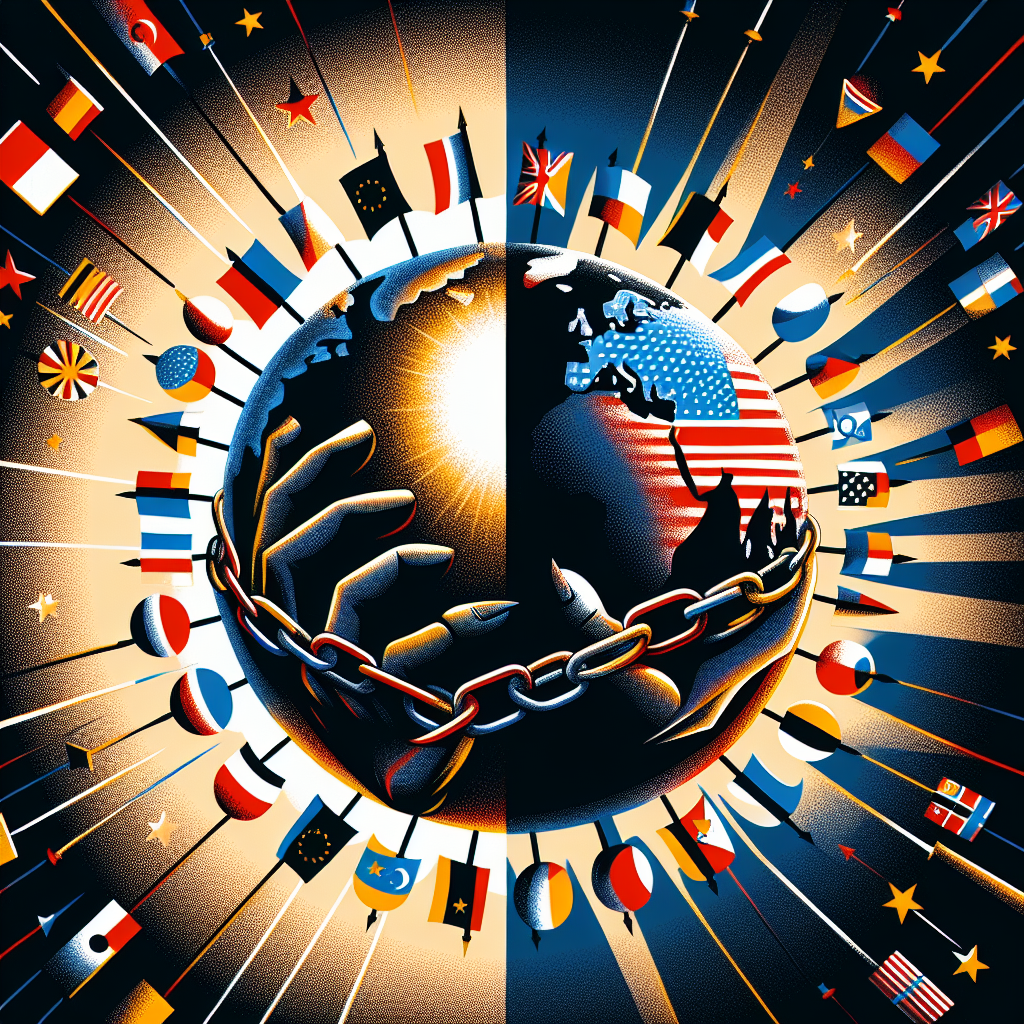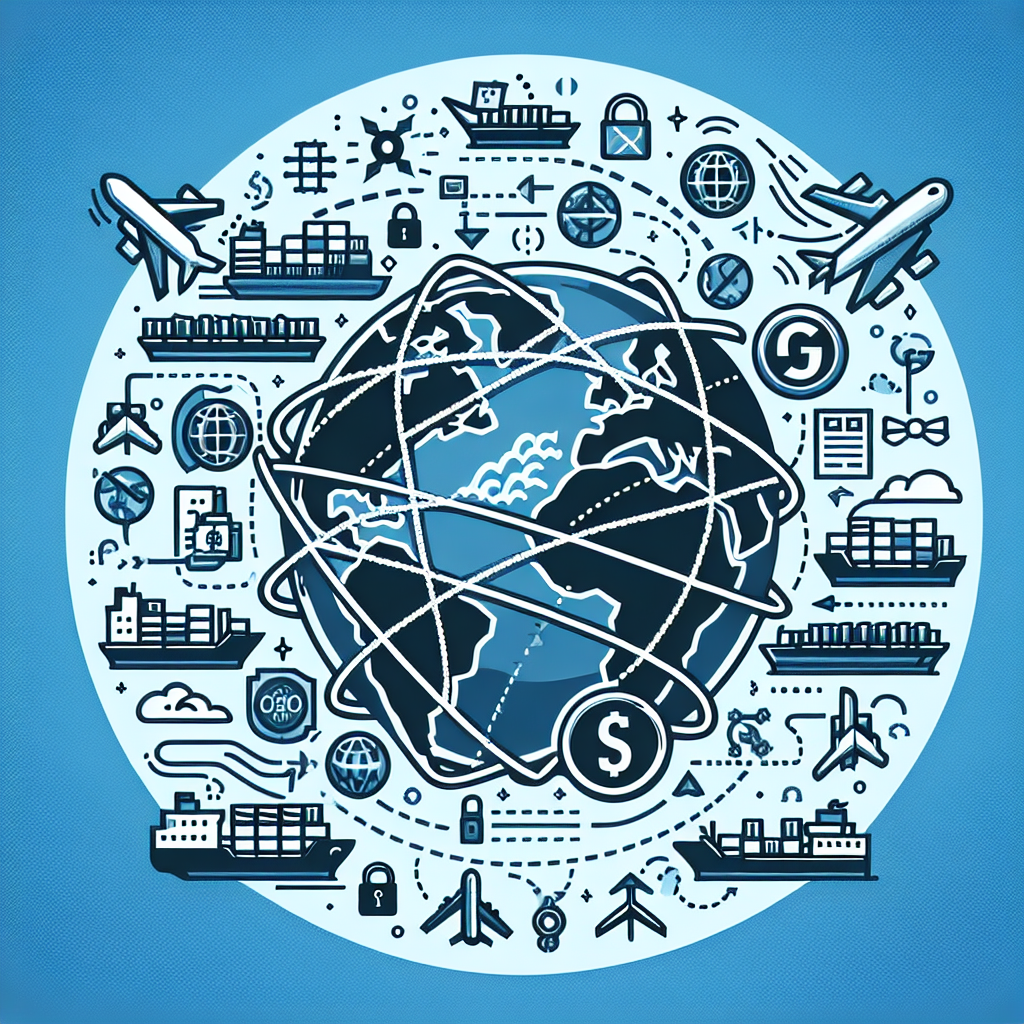
Introduction
In an increasingly interconnected world, global events play a pivotal role in shaping national political attitudes. From economic crises and environmental disasters to significant geopolitical shifts and social movements, the influence of global happenings on domestic policy and public opinion is undeniable. As we navigate through 2025, the repercussions of recent global events highlight the complex relationship between international occurrences and national political landscapes. Understanding how these dynamics work is essential for grasping contemporary political discourse and responses around the world.
Global Crises and Their Impact on Domestic Policies
The past few years have witnessed a series of global crises that have left profound impacts on national political attitudes. For instance, the COVID-19 pandemic reshaped public perception of health policies and governmental transparency across countries. The various approaches to pandemic management revealed contrasting political philosophies, with some governments prioritizing strict lockdown measures while others adopted more laissez-faire strategies. As nations continue to cope with the lingering effects of the pandemic in 2025, debates over healthcare funding and governmental responsibility remain fiercely contested, reflecting a deeper distrust in political leaders that has been exacerbated by global crises.
Moreover, economic instability resulting from such crises triggers reactions at the grassroots level. Countries like Argentina and Turkey have experienced significant currency devaluation and inflation as a direct consequence of global economic disruptions. The public’s frustration often leads to political upheaval, as citizens demand accountability and change from their leaders. Consequently, political movements rooted in populism and anti-establishment sentiments have gained momentum, showcasing how global events catalyze shifts in national political attitudes, fostering a climate where radical solutions begin to take root.
Climate Change and Political Attitudes
As the escalating impact of climate change becomes increasingly evident, national political attitudes are being reshaped not just by the science of climate impacts but by global movements advocating for action. The Climate Strikes of recent years, led predominantly by youth activists, have galvanized public opinion and brought climate issues to the forefront of political dialogue in many nations. By 2025, with extreme weather events more frequent and catastrophic wildfires devastating parts of Australia and California, there is a renewed urgency among citizens to hold their governments accountable for environmental policies.
Countries have begun to respond with varying degrees of commitment to climate action, influencing political stances and electoral outcomes. For instance, in the United States, a strong push for green policies led to significant political shifts, with the Biden administration focusing relentlessly on clean energy and sustainability initiatives. Conversely, nations with governments that deny climate change have faced increased public outcry and protest, resulting in shifts towards eco-centric parties. These changes underscore how global environmental events pressure local political systems to adapt, thereby redefining what is politically acceptable in terms of climate governance.
Technological Advancements and Their Political Effects
In 2025, technological advancements continue to play a crucial role in shaping national political attitudes, largely driven by global trends in digital innovation. The rise of artificial intelligence (AI) and big data analytics has transformed how governments engage with their citizens. Countries around the world are adopting digital platforms to enhance governmental transparency and public participation, thus reshaping political responsiveness. This shift is informed by global standards and practices, pushing nations toward more participatory governance models, which can invigorate political engagement among populations.
However, the same technology that enhances political engagement can also lead to misinformation and polarization. The challenge of deepfakes and highly-targeted social media campaigns, often originating from foreign entities, raises critical questions about election integrity and political trust. Nations are becoming increasingly vigilant as they confront the dual-edged sword of technology in politics. Legislation aimed at countering misinformation is emerging, alongside campaigns promoting digital literacy among citizens, demonstrating how global tech issues directly affect national political cultures.
In this environment, the ongoing geopolitical rivalry—primarily between the U.S. and China—over technological supremacy further influences political attitudes. Concerns regarding data privacy, cybersecurity threats, and the ethical implications of AI deployment are now central in the political discourse, impacting both domestic policies and international relations. As countries negotiate their positions within this rapidly evolving tech landscape, national attitudes reflect the collective anxiety and hope surrounding the future of governance in the digital age.
Global Migration Trends and National Responses
Migration has emerged as a significant global issue, with millions displaced due to conflicts, climate change, and economic instability. The refugee crisis, particularly following events like the Syrian civil war and more recent upheavals in Afghanistan, has tested the limits of national compassion. By 2025, nations are grappling with how to respond to influxes of migrants while maintaining security and public order. Political attitudes toward immigration have shifted dramatically in many countries, often reflecting broader societal fears and economic anxieties exacerbated by global events.
In Europe, for instance, the arrival of large numbers of refugees has led to a rise in nationalist sentiments and anti-immigrant rhetoric, influencing political landscapes significantly. Political parties that champion strict immigration controls have gained traction, often winning elections by appealing to the fears of voters concerned about job security and cultural identity. Conversely, countries with progressive stances on migrants have also seen political shifts as they advocate for integration and support, showing that global migration trends can lead to both conservative and liberal political responses.
Furthermore, the societal impacts of migration extend beyond policy responses; they influence cultural attitudes and narratives that define national identity. In countries like Canada, where diversity is celebrated, the embrace of migrants has fortified a national identity rooted in multiculturalism. This contrast illustrates that global migration can provoke diverse political attitudes, framing either fear or celebration as communities grapple with the implications of their changing demographics.
Global Economic Trends and Political Shifts
Global economic trends significantly influence national political attitudes, particularly in an era of economic interdependence. As the world recuperates from the aftershocks of the pandemic, trends like globalization, trade wars, and economic recovery packages reconfigure political landscapes. The rise of protectionism in various countries, propelled by populist agendas, reflects a growing skepticism towards traditional economic globalization. The United States-China trade tensions have had far-reaching consequences, reshaping trade policies and nationalistic economic strategies worldwide.
By 2025, countries are re-evaluating their economic dependencies, leading to a rise in localism and national production. Political movements advocating for “buy local” campaigns have gained support as citizens seek to shield their economies from the vulnerabilities highlighted by global pandemics and supply chain disruptions. Consequently, political parties are adjusting their platforms to address and accommodate this shifting economic narrative, thus revealing the broader implications of global events on national economic policies.
Moreover, fiscal responses to global economic crises, such as stimulus packages and international aid, significantly shape public perceptions of government efficacy. Public response to these government interventions can solidify or undermine political support. Countries that successfully implement economic recovery measures tend to see enhanced political stability, while those that appear unresponsive or ineffective endure political backlash. This relationship underscores the necessity of responsive governance in the face of global economic realities, directly illustrating how global events translate into national political attitudes.
Conclusion
In conclusion, global events decisively influence national political attitudes through various mechanisms. From crises like the COVID-19 pandemic to climate change, technological advancements, migration trends, and shifting economic landscapes, the interdependencies between global occurrences and domestic politics are increasingly pronounced. As nations navigate the complexities of a shared global future in 2025, the political landscape reflects a blend of resilience, reaction, and reform driven by external pressures. By understanding these dynamics, we gain invaluable insights into current political debates and the future of governance worldwide.
FAQs Section
How do global events affect local political attitudes?
Global events often catalyze public perceptions and political responses at the local level by provoking questions about governance, accountability, and national identity, leading to changes in political support and policy focus.
What role does media play in shaping political attitudes during global crises?
Media plays a crucial role in informing the public about global events, influencing perceptions through the framing of news stories, and determining which events are deemed significant, ultimately shaping political attitudes.
Can domestic political trends influence global events?
Yes, domestic political trends can influence global events, particularly through foreign policy decisions, trade agreements, and coalition formation, as nations pursue their interests on the international stage.
Democracy versus Autocracy: A Global Perspective
16. Dezember 2025The Impact of Sanctions on Global Trade Dynamics
16. Dezember 2025Geopolitical Tensions in the South China Sea
16. Dezember 2025
Leave a reply Antwort abbrechen
-
Championship Glory as Team X Claims NBA Finals Title
13. Juli 2025 -
Analyzing Team Performance Through Advanced Statistics
16. Dezember 2025 -
Super Bowl Matchup Predictions: Early Favorites
2. Dezember 2025




